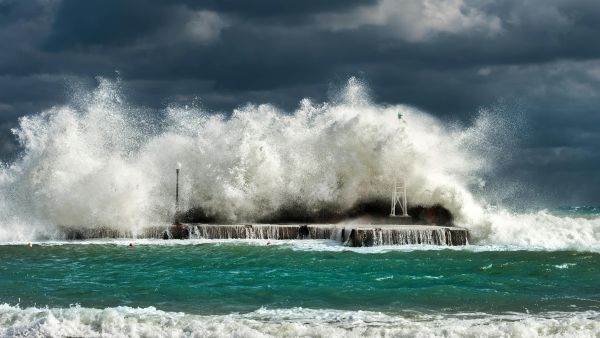Northwestern Greece is experiencing one of the most severe episodes of extreme weather this year, after powerful storms, accompanied by torrential rain, caused massive flooding, landslides and material damage in numerous localities. According to the DPA agency, dozens of communities have been affected, and authorities are struggling to restore access to blocked roads and evacuate dangerous areas. The region around the city of Ioannina, located in northwestern Greece, was hit by historic rainfall: about 280 millimeters of rain fell in just a few hours, according to the Greek meteorological service. Rivers quickly burst their banks, flooding basements, ground floors and entire streets, while numerous cars were swept away by the torrents formed. Landslides have worsened the situation, blocking roads and isolating communities that depend on mountain road infrastructure.
• Isolated villages, destroyed roads, closed schools
Among the worst-hit areas is the tourist island of Corfu, where damage is considerable. In the village of Karousades, with about 2,000 inhabitants, the town has become completely isolated after access roads were covered in massive amounts of mud and gravel. "Even the police station is blocked by tons of mud,” the mayor of North Corfu told the Kathimerini newspaper. The mayor said authorities were waiting for heavy machinery from the mainland to unblock roads and restore access to areas buried under the mud. Many roads on the island have been severely damaged or completely destroyed, making it difficult for rescue teams to intervene. As a precaution, schools in the region will remain closed on Monday.
• From severe fires to devastating floods
The situation is aggravated by the consequences of the 2023 wildfires, which severely affected the northern part of the island of Corfu. Meteorologists explain that the lack of vegetation, which normally stabilizes the soil and absorbs some of the precipitation, amplified the effects of the torrential rains. In the absence of the natural barrier provided by forests and shrubs, mud and stones were easily carried by torrents, dramatically increasing the risk of landslides and quickly flooding inhabited areas. The Greek meteorological service warns that the rains will continue, although their intensity should gradually decrease. However, the authorities remain on alert, fearing that the accumulation of water and the instability of the soil may generate new problems. Climate specialists draw attention to the increasing frequency of extreme weather phenomena in the Mediterranean basin, a region considered a "climate hotspot", where climate change is increasingly producing sudden alternations between devastating fires and violent floods. Emergency teams are still trying to assess the damage and rebuild damaged infrastructure, but many areas remain inaccessible. Local authorities say it is too early for a full assessment, but the effects are already evident: broken roads, flooded homes, damaged vehicles and isolated communities. As Greece tries to return to normal, meteorologists and climate safety experts say such episodes will become more frequent, putting pressure on infrastructure and emergency response systems.
















































